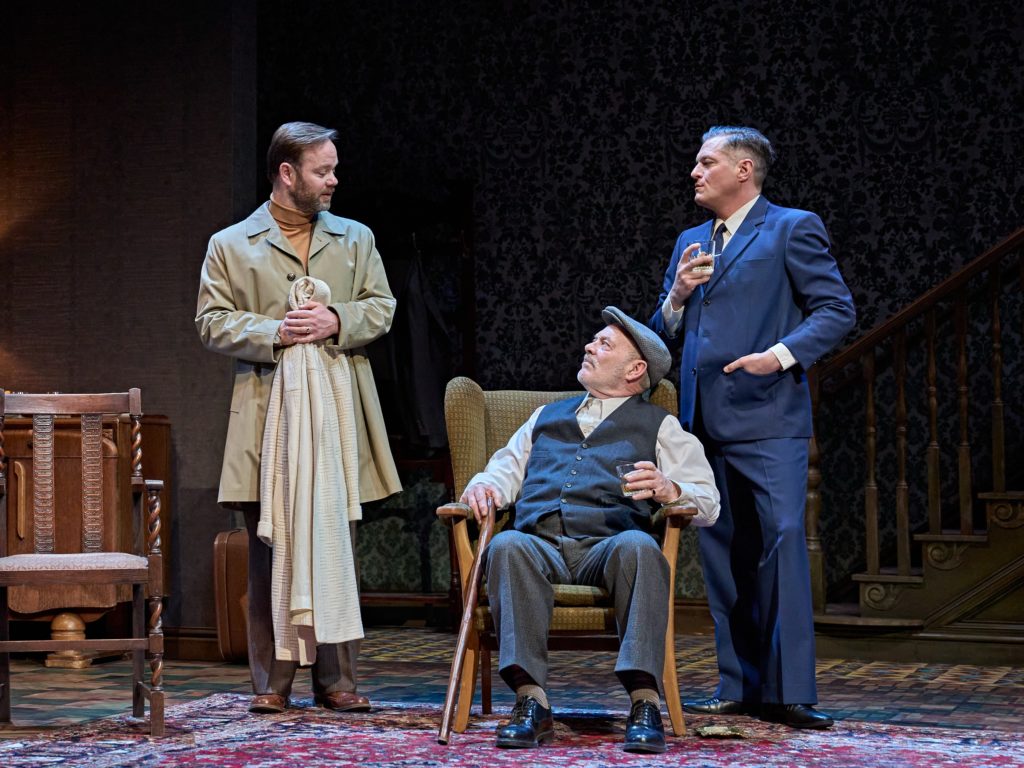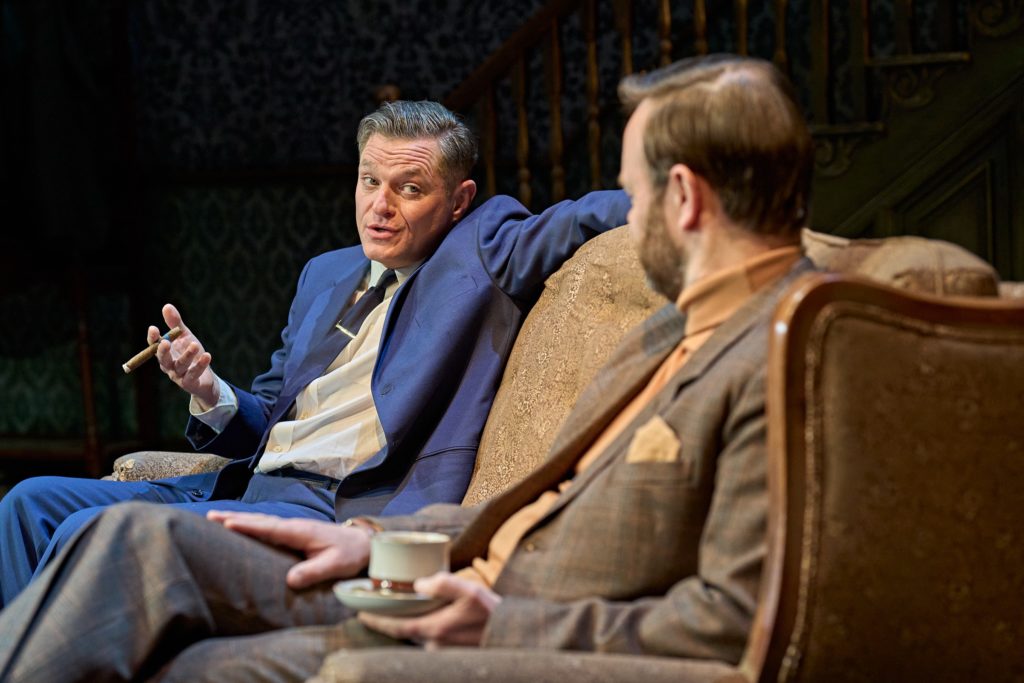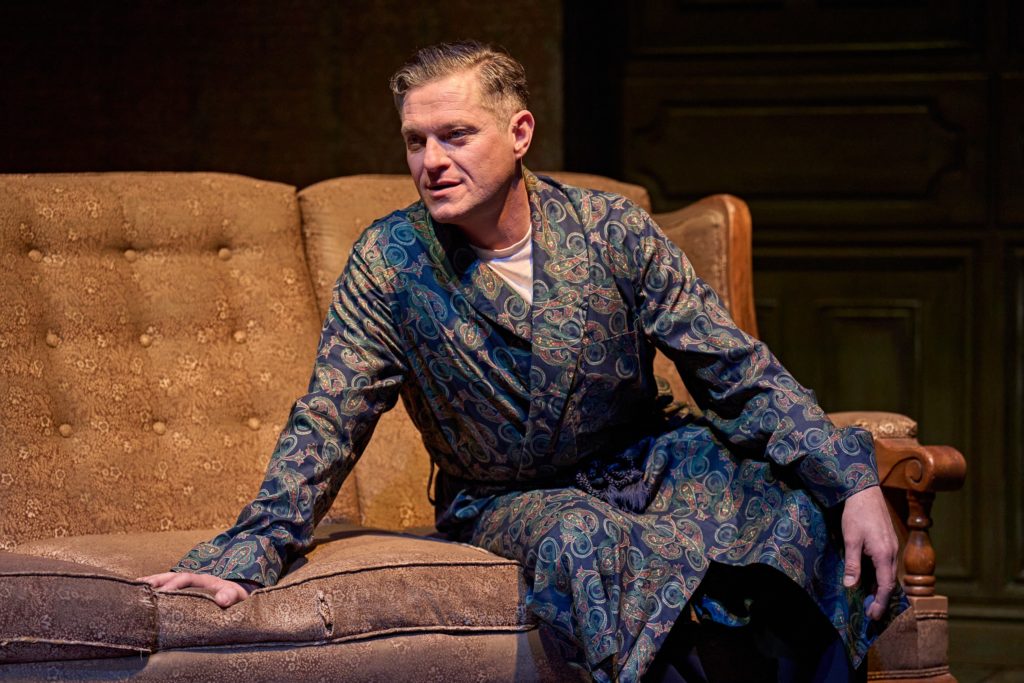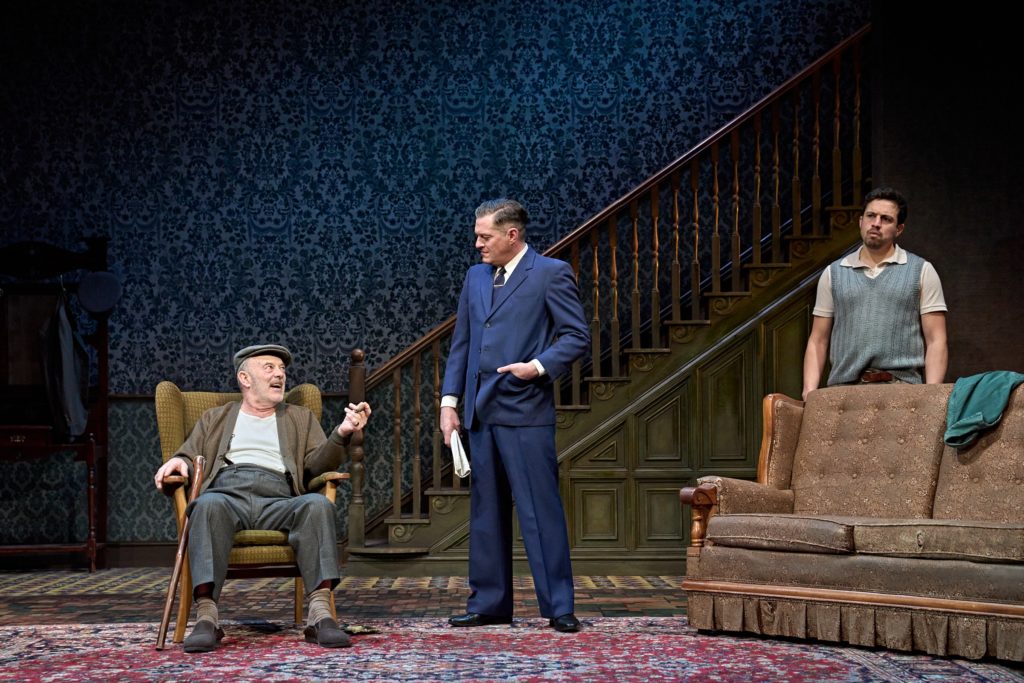
GAVIN & Stacey star Mathew Horne has performed on a York stage only once before, appearing in The Catherine Tate Show Live show at York Barbican.
“We started the tour there. It must be five years ago,” he recalls, ahead of being joined by Keith Allen and Ian Bartholomew in Jamie Glover’s touring production of Harold Pinter’s fractious family drama The Homecoming at York Theatre Royal from May 16 to 21.
“I know York very well from going on school trips from my hometown of Nottingham, though I don’t know the Theatre Royal itself, but I’m assured by our director that it’s beautiful with very good audiences.”
Mathew initially had hoped to be touring opposite Allen in another Pinter work, The Caretaker, rather than The Homecoming, his bleakly humorous exploration of family and relationships, premiered in the West End in 1965 before winning four Tony Awards on Broadway in 1967, including Best Play.
“Really the whole seed of the idea came from myself and director Jamie Glover, an actor-director colleague and friend of mine,” says Mathew.
“We had wanted to do a play for a while, and Keith had done an episode of Agatha Raisin [the Sky One series in which Horne plays Roy Silver]. I’ve known him for 15 years, and he came on and did a guest part.
“Just after that, I did a film called Bolan Shoes with Timothy Spall, which will be out at the end of this year. I got talking to him about the last play he’d done, The Caretaker, and I thought, ‘hang on, I’d love to play Aston in that with Keith as the Caretaker’.”

Mathew duly took the idea to Glover, with the aim of mounting a production at the Theatre Royal, Bath. “But the rights weren’t available,” he recalls. “However, we could do The Homecoming, because it was offered to us by Harold Pinter’s estate.
“I thought, ‘that’s going to be a problem because Keith has done it twice already, the last time seven years ago.”
Indeed, Allen had played university professor Teddy at the National Theatre in 1997 and chauffeur Sam at London’s Trafalgar Studios in 2015. “I called him anyway, and Keith said he’d always wanted to play Max [retired butcher, brutal patriarch and Teddy’s father], which slightly blindsided me, but I was delighted.”
In Pinter’s coruscating play, university professor Teddy returns from America in 1965 with his wife Ruth to find his find his elderly father, uncle and brothers still living at their childhood home in North London, whereupon life becomes a barely camouflaged battle for power and sexual supremacy fought out with taut verbal brutality.
Amid the men’s struggle for power and one-upmanship, who will emerge victorious in this misogynistic cauldron: the poised and elegant Ruth or her husband’s dysfunctional family?
Mathew takes the role of Lenny, Teddy’s enigmatic brother. “He’s a pimp and a bit of a chip off the old block in terms of his father,” he says. “He’s a working-class boy with aspirations above his station and on the surface he appears to be a charming and amiable man but there’s a deep-seated resentment and menace about him.
“He’s a character that I always wanted to play so it felt like a no-brainer. It’s the danger and menace that’s innate in him which attracted me to the role because it’s not something I’m generally allowed to play on television or in films.

“A character with real danger and menace is something I can’t recall having done, so that’s every reason to play him.”
In a nutshell, Lenny is an enigma in a typical Pinter puzzle. “This play is particularly a puzzle because it’s a game: a struggle for power involving both a familial power play and a gender power play,” says Mathew. “Most puzzles have answers but Pinter wanted ambiguity, and that’s why people are puzzled, because you laugh when morally and ethically you feel you shouldn’t.
“Pinter is holding up a mirror to society but he does that in a very visceral way because he makes you question your own moral ethics. That’s why The Homecoming is deeply complex and deeply challenging, at times hysterically funny, but at other times sickeningly vile. That’s what theatre should do: ask you questions and challenge you.”
How do actors respond to facing a play with a puzzle at its heart? “Working out that puzzle, as actors we have to make choices and decide answers ourselves, but how we play it is to Pinter’s intentions,” says Mathew.
“There are ambiguities, and so it’s up to the audience to each decide what they think, but it’s not that we don’t have to make choices, but ambiguity is innate to the play.
“I’ve made all sorts of choices about Lenny, his background and his intentions, but how the audience reads that is none of my business. Sometimes there’s pure laughter, sometimes uncomfortable laughter, and you might even hear someone in the audience go ‘OK…’, which is really thrilling.”
Keith Allen reckons Jamie Glover’s direction has led to this production being the most humorous of his three encounters with The Homecoming. “I do concur with Keith on that,” says Mathew. “It was important for me in my early discussions with Jamie that we went down the humorous line because I’d seen the 2015 production, which was more bleak and went down the nasty path.

“We feel the only way to redeem some of these characters is to go for the comedy. It was written as a comedy, a deep, deep black comedy and it should be funny. Having seen a production that didn’t lean into that comedy, we felt we had to do that – and Keith feels this production is the closest to what Pinter would have wanted.
“You can’t control laughter, but if The Homecoming makes you laugh and then question why, it’s really exciting.”
“Puzzle” is not the only “P” word associated with Pinter. So too is the importance of “the Pause”. “The pauses mean as much as the words, and that’s how we approached it in rehearsals, really working on the silences, the pauses and the ellipses,” says Mathew.
“These are the three areas where actors are supposed to be quiet, but because it’s Pinter, they all mean something different to each of the other characters. So we worked on that; what they meant to each character, and there was only one where we couldn’t think why it was there, or what the character [saying that speech] or the other characters were thinking, but we’ve still made it work!”
How highly does Mathew rate The Homecoming among Pinter’s works? “It is his best play, simple as that,” he contends. “It’s poetic and it’s like a piece of classical music. It’s an immaculate work in terms of the writing and there’s no fat on the meat in this play. It’s deft.”
As for the play’s resonance in 2021, Mathew says: “The exploration of masculinity, male toxicity and the patriarchy is very much bubbling away throughout and that feels particularly relevant now with war happening in Europe and with the ultimate despotic patriarch at the helm.”
Presented by Theatre Royal Bath Productions, The Homecoming runs at York Theatre Royal, May 16 to 21, 7.30pm; plus 2pm Thursday matinee; 2.30pm, Saturday. Box office: 01904 623568 or at yorktheatreroyal.co.uk.
Copyright Of The Press, York
